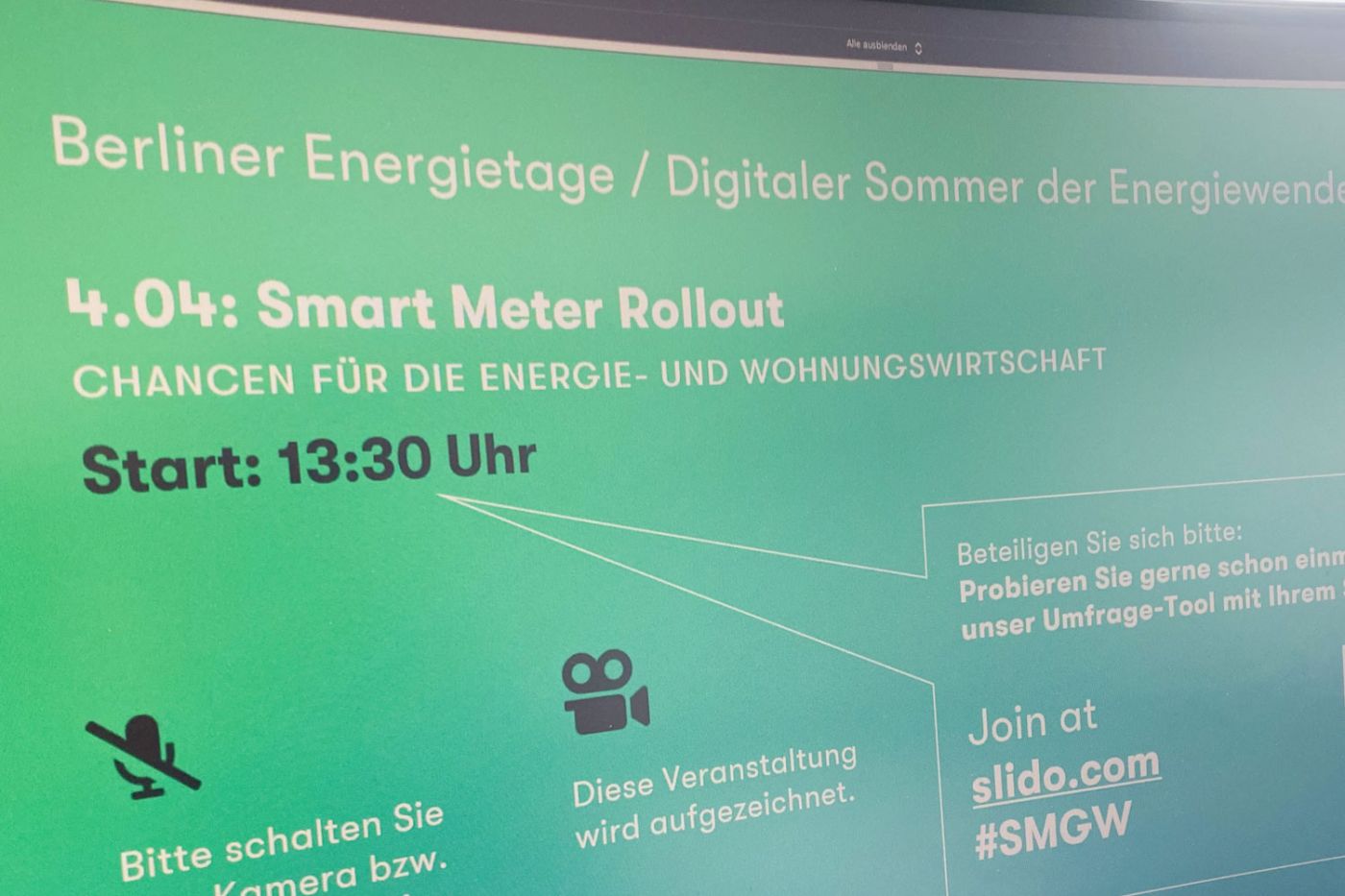News

As the smart meter rollout proceeds, the energy industry and the real estate sector are growing ever closer. At the Berliner Energietage (Berlin Energy Days), which took place for the first time this year as the “digital summer of the energy transition”, it was once again clear what opportunities the smart meter rollout had opened up for companies from both sectors. On Tuesday 9 June the sectoral experts Axel Gedaschko (President of the GdW (Bundesverband deutscher Wohnungs- und Immobilienunternehmen, Federal Association of German Housing and Real Estate Enterprise Registered Associations)), Michael Wübbels (Deputy Managing Director of the VKU (Verband kommunaler Unternehmen, Association of Local Public Utilities) and Ingo Schönberg (director responsible for energy technology at ZVEI (Zentralverband Elektrotechnik- und Elektronikindustrie, Central Association of the Electrical and Electronic Industry) and managing director of PPC (Power Plus Communications)) came together for a virtual dialogue. Where do we stand today, almost six months after the official launch of the smart meter rollout? What opportunities can municipal utility providers and housing associations see? And how can potential opportunities best be exploited by municipal players?
noventic's digital podium discussion at the Berliner Energietage addressed the legal requirements involved in the rollout and also the economic opportunities which energy suppliers and housing associations may be able to exploit through the rollout. Sectoral experts Axel Gedaschko, Michael Wübbels and Ingo Schönberg agreed that the rollout will only succeed if people work together. “The interoperability of the devices used is a central point. Without it, opportunities and technological progress will be limited”, Gedaschko points out.
In the European Energy Efficiency Directive (EED) legislators too turn the spotlight on the use of interconnected infrastructure and the associated provision of consumption information throughout the year. The President of the GdW stresses the urgent need for the rollout of modern technology if we are to achieve our climate targets: “Each year we invest billions in the shells of buildings, but end-user energy consumption does not fall. The user must be assisted through technology.” Michael Wübbels added that “Consumers weigh up costs and risks quite precisely. The data must be well prepared in order to deliver any benefits”.
For this purpose noventic has developed an app for tenants which meets the requirement for consumption information throughout the year in a particularly innovative way, as well as augmenting it with further added value. One way in which innovations find their place with the aid of the newly created, secure infrastructure.
To conclude the event, which was fully subscribed with almost 200 participants, Ingo Schönberg reaffirmed his call for the rigorous deployment of the smart meter gateways: “This secure infrastructure, which is produced in Germany and is already in place, can be used to leverage synergies and thereby cut costs. In ten years, the smart meter gateway will be installed in virtually every basement.” Consequently the smart meter rollout will become a central component in the cost-efficient furtherance of climate protection.